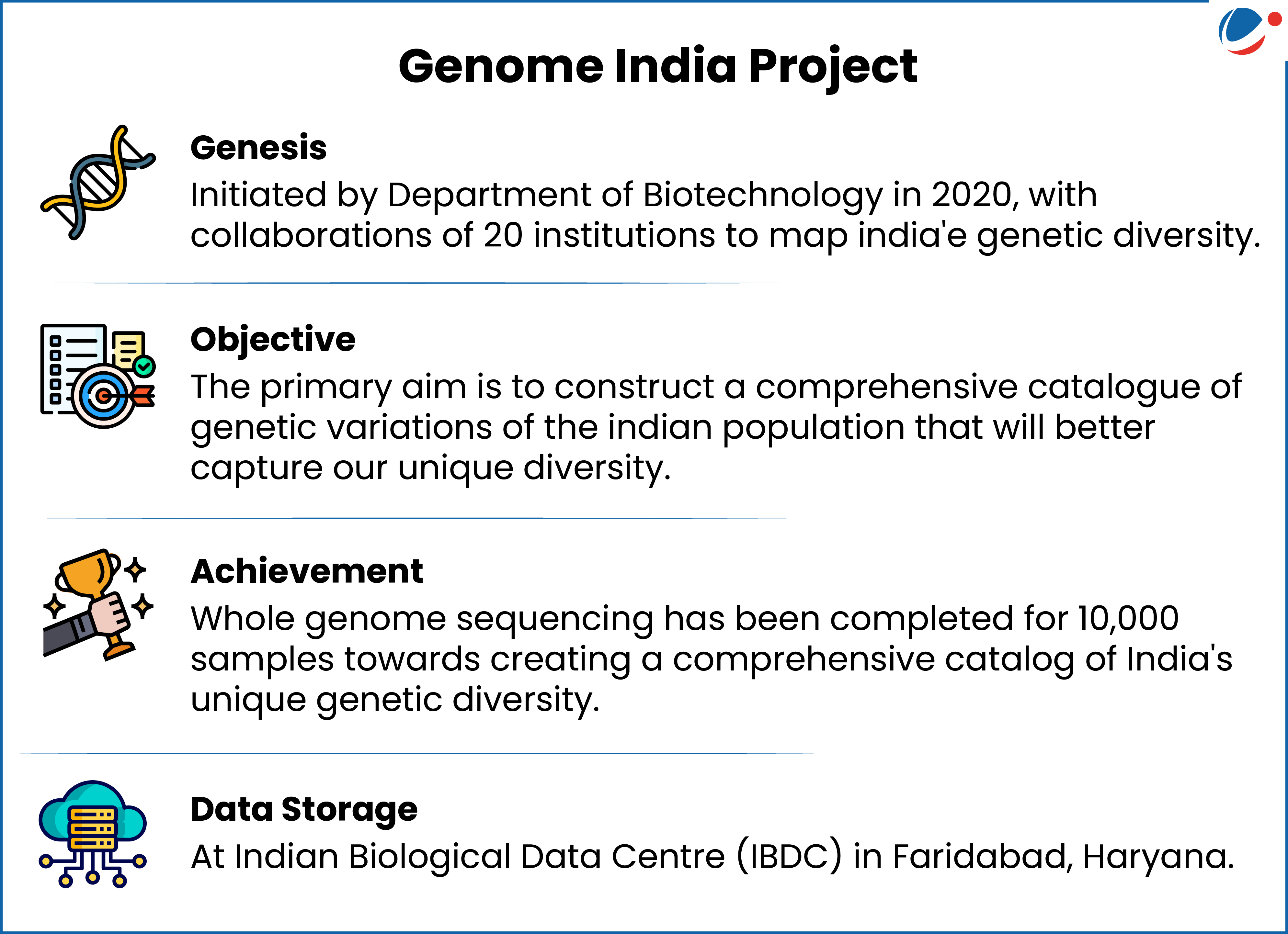Preliminary findings of the GenomeIndia project revealed 180 million genetic variants from 9,772 individuals across India.
- A gene variant is a permanent change in the DNA sequence that makes up a gene.
- Genome is entire set of genetic material (DNA or RNA in some) present in an individual or species.

About the study
- Coverage: Both tribal and non-tribal groups of Tibeto-Burman, Indo-European, Dravidian, and other tribal groups including Austro-Asiatic, and Admixed populations.
- Types of Chromosomes Studied: Both non-sex chromosomes (autosomes) as well as sex chromosomes (X and Y).
Why Does This Study Matter?
- Understanding the Unique Genetic Makeup: About 0.1 % of the entire sequence differs between any two individuals.
- These genetic variations among individuals are crucial for understanding our disease predispositions and rare inherited disorders.
- It will help in understanding the history, natural selection and adaptation of these communities.
- Building a Reference Panel: This could facilitate creating a variant panel useful for future small-scale studies, helping fill in missing data and link genes to diseases in the Indian population.
- Application in Healthcare: It will develop low-cost diagnostic kits, furthering Precision medicine efforts by disease diagnosis and predicting the genetic basis of drug responses etc.
- It will help in advancing public health interventions as well.




